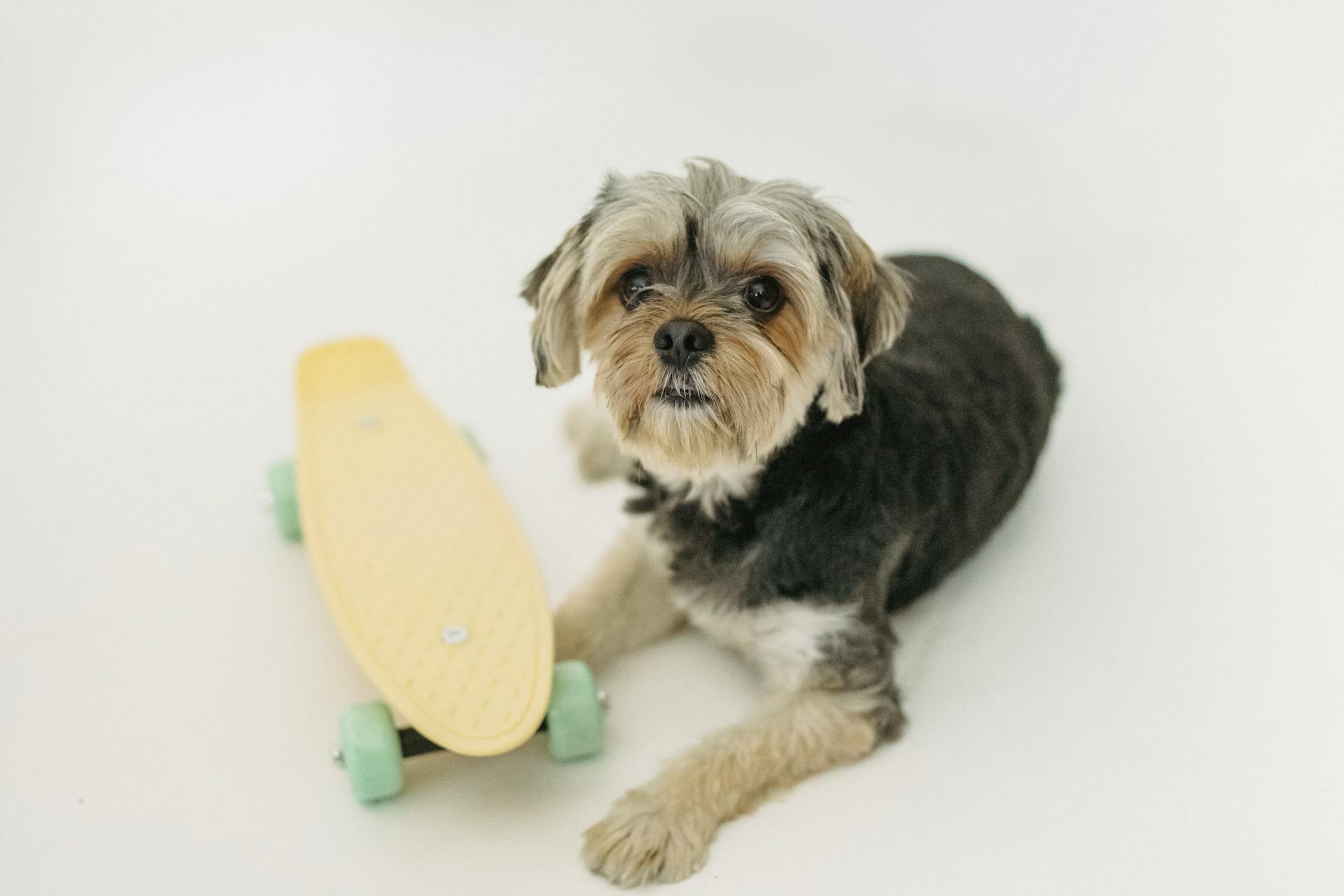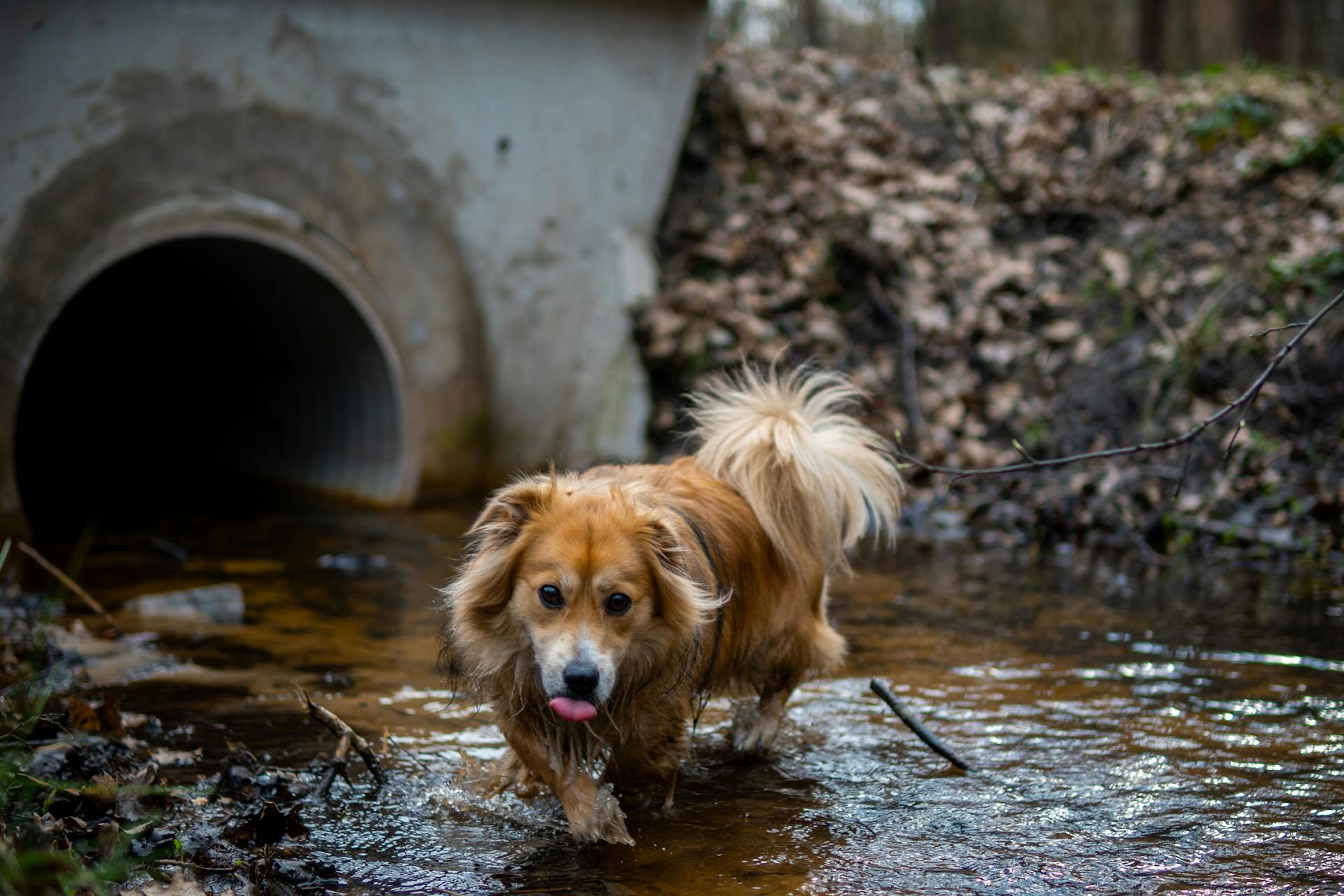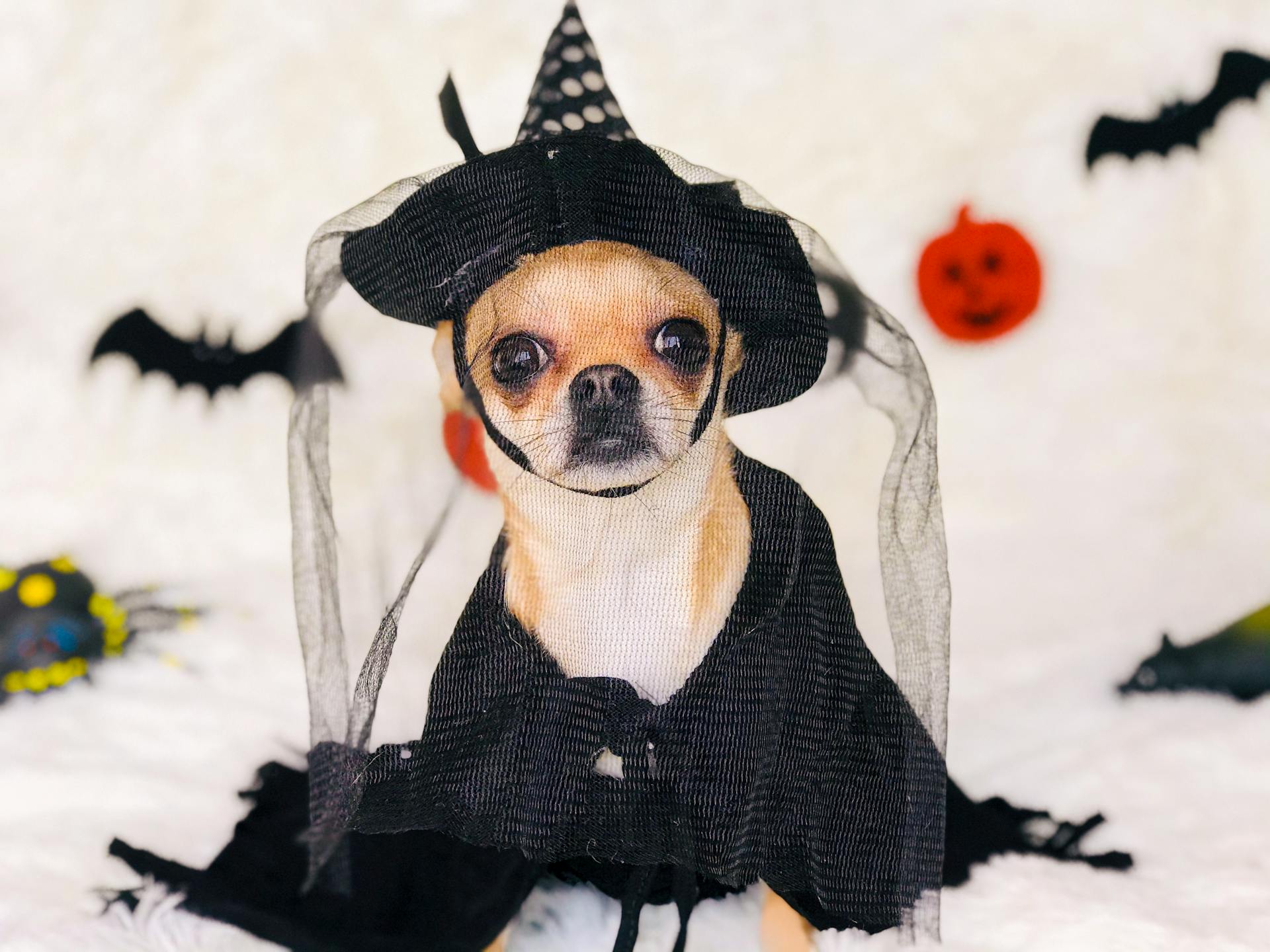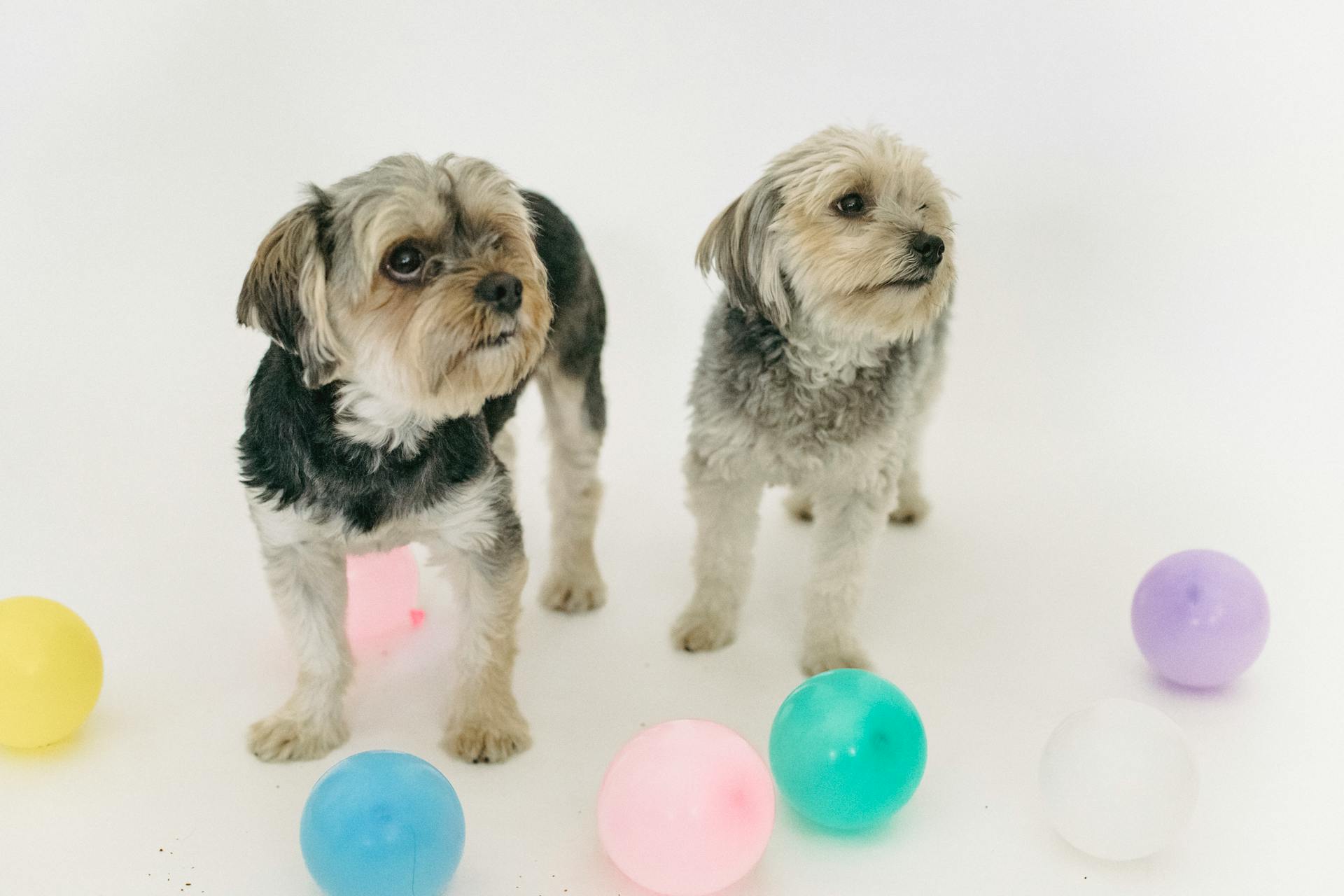
The Bichpoo is a cross between a Bichon Frise and a Poodle, typically a Toy or Miniature Poodle. This mix creates a low-shedding, hypoallergenic companion that's perfect for those with allergies.
The Bichpoo's gentle and playful nature makes them an excellent choice for families with children. They are also highly social and require regular interaction to prevent boredom and destructive behavior.
Bichpoos are generally small in size, weighing between 7-12 pounds and standing 9-12 inches tall. This compact size makes them ideal for apartment living or homes with small yards.
Their intelligence and trainability make Bichpoos easy to teach basic commands and housebreaking.
Health Issues
Bichpoos are prone to certain health issues due to their Poodle and Bichon Frise heritage. Regular check-ups with a vet can help identify and manage these conditions.
Progressive retinal atrophy, a serious health issue, can lead to vision loss and blindness in Bichpoos. This condition can be identified and managed with regular veterinary care.
Separation anxiety is another common issue in Bichpoos, caused by their strong bond with their owners. Proper training and socialization from an early age can help alleviate this issue.
Bichpoos may inherit patellar luxation, a condition where the kneecap dislocates, due to their Poodle lineage. Regular exercise and maintaining a healthy weight can help reduce the risk of this condition.
Bichpoos may also be prone to allergies, which can cause skin irritations and discomfort. Consulting with a vet and providing a proper diet can help manage these allergies effectively.
Regular hygiene is essential for maintaining the health and appearance of a Bichpoos coat. Daily brushing not only keeps their coat looking its best but also helps distribute the natural oils, keeping their skin healthy.
Here are some key health issues to be aware of in Bichpoos:
- Progressive retinal atrophy
- Separation anxiety
- Patellar luxation
- Allergies
Size and Space
Bichpoos are perfect for apartment living due to their tiny size. They don't need a huge backyard or fields to run in.
In fact, they're happy to snuggle on the couch or a little pillow. You'll still need to take them on plenty of walks or runs at the dog park to keep them exercised.
A bichpoo, fully grown, will typically weigh 18 pounds or less. This makes them a great choice for people who live in smaller homes.
Bichpoos average around a foot tall, which means they need less space to run around. They also need less food, making feeding them more affordable.
Here's a quick size comparison to other popular breeds:
- Siberpoo
- Beaglier
- Miniature Schnoxie
Remember, a bichpoo's size means they still need regular exercise to stay healthy and happy.
Exercise and Activity
A Bich-poo needs a minimum of 30 minutes of activity each day to stay happy and healthy.
If your Bich-poo doesn't have access to a backyard, they may require more time for exercise. This can help prevent destructive behavior like barking, chewing, or whining.
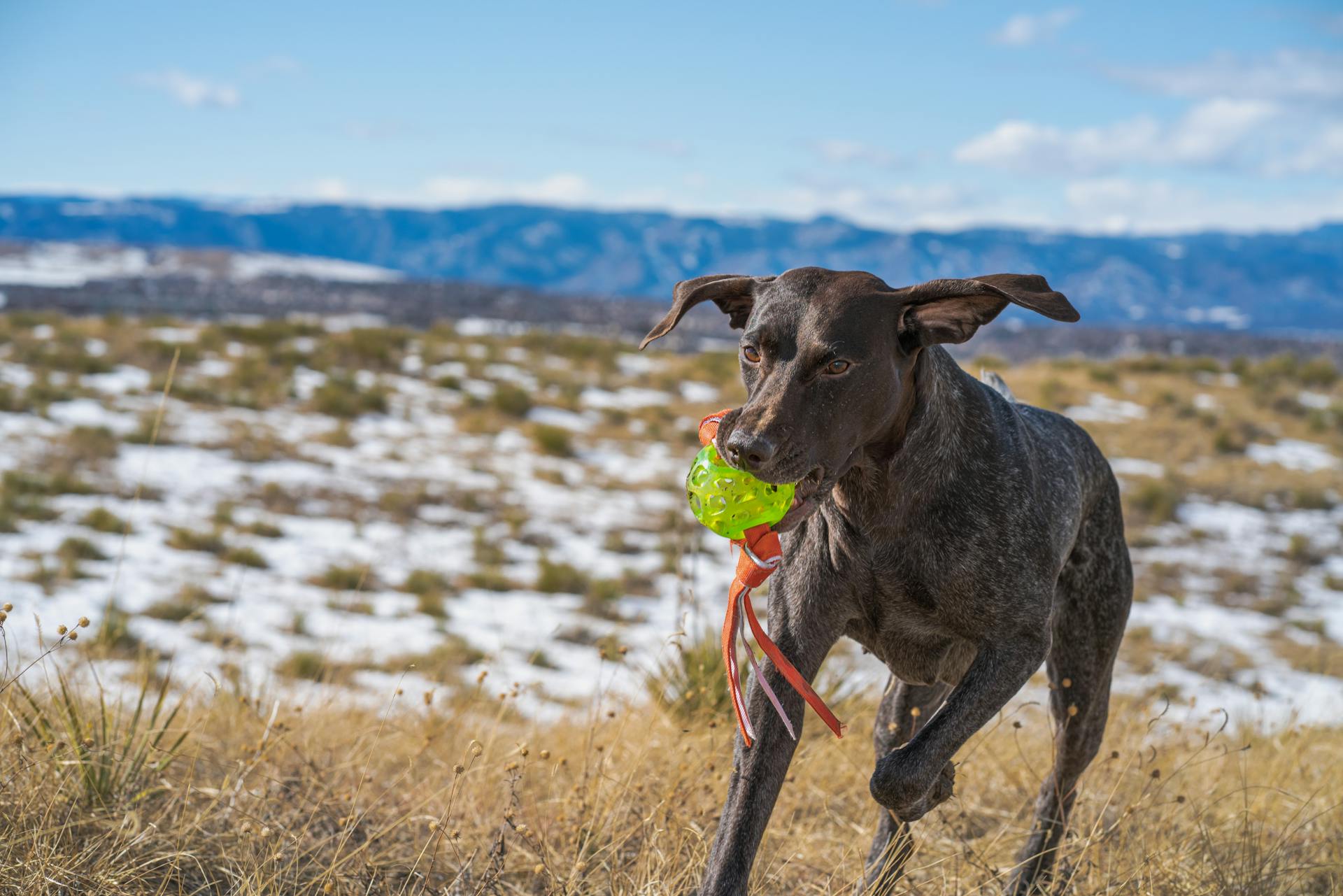
Including a dog park visit, a playdate session, or a short forest trek in their week can provide added physical and mental stimulation.
Tailor exercise routines to your Bich-poo's size to ensure they're getting the right amount of activity.
Don't forget to include playtime and socialization in your Bich-poo's exercise routine for a well-rounded workout.
Grooming and Maintenance
Grooming your bichpoo requires regular attention to prevent knots and tangles in their coarse, loose curls. They need to be brushed frequently and bathed when necessary, with professional grooming every two to four months.
Bichpoos are prone to ear infections, so it's essential to check and clean their ears once a week. You'll know when your bichpoo needs their nails clipped if you hear them clicking on the floor when they walk.
To keep your bichpoo's coat looking its best, daily brushing is a must. Regular brushing not only prevents mats and tangles but also helps distribute natural oils, keeping their skin healthy.
Breed Appearance
The Bich-poo's appearance is a unique blend of its parent breeds, the Bichon Frise and the Poodle. Their coats can be a variety of solid colors, including white and apricot.
Their coats are thick and curly, often clipped for a lower maintenance look. Bichpoos can also have a show ring-style round appearance, depending on their owner's preference.
Their tails are plumed and hang over their back, adding to their adorable appearance. Bichpoos have dark eyes, either oval in shape or amber, depending on their Poodle heritage.
Their build is squarely proportioned, with a level topline and a long muzzle. Bichpoos typically weigh between 6-12 pounds, making them a great choice for apartment living.
Care and Maintenance
Grooming your Bichpoo is a top priority, as it can help prevent infections and keep their coat looking its best. Regular brushing is essential to prevent mats and tangles, and daily brushing is recommended to keep their skin healthy.
A Bichpoo's coat requires regular care, including brushing, bathing, and shampooing when necessary. They will likely need to be groomed by a professional every two to four months.
Bichpoos need dental care and nail clipping, just like every other dog breed. Brushing their teeth at least one or two times per week, or every day if possible, is crucial. Clipping their nails regularly, probably once or twice a month, will also help prevent overgrowth.
You'll know when your Bichpoo needs their nails clipped if you hear them clicking on the floor when they walk. It's also essential to check and clean their ears once a week, as Bichpoos are prone to ear infections.
Here are some key aspects of care and maintenance for your Bichpoo:
By following these care and maintenance tips, you'll be able to keep your Bichpoo happy and healthy, and prevent potential health issues down the road.
Temperament and Family
Bichpoos are known for their sweet personalities, always eager to please and cuddle. They make great pets for seniors and young ones alike, thanks to their appealing demeanor and love of attention.
Children should be monitored when interacting with bichpoos, as any dog can nip if they feel threatened. However, bichpoos love to run around and get their energy out, making them a perfect match for many children who know how to interact appropriately with pups.
Raising a bichpoo puppy involves incorporating them into daily activities and providing love and attention. Bichpoos are a hybrid breed that make excellent companion pets, known for their charm, intelligence, and affection.
Regular exercise, such as daily walks and playtime, is essential to keep bichpoos physically active and mentally stimulated. This helps prevent boredom, restlessness, and problem behaviors that may arise from a lack of activity.
Bichpoos are smart, so training shouldn't be an issue, especially with early training and socialization. Reinforce positive behaviors with treats and praise to encourage good habits.
Finding and Owning
Ready to bring a Bichpoo into your life? You're not likely to find one in a shelter since these adorable dogs don't remain ownerless long. Your best bet will be to locate a reputable Bichpoo breeder in your area.
Avoiding puppy mills is critical. Puppy mills are run by sellers whose only concern is making money, and their dogs are often overbred and neglected. Ethical breeders offer dogs who look healthy and who have adequate living space that is clean and hygienic.
You'll need to budget time and money for your Bichpoo's care, investing in their health is a priority and can save you money down the road.
Breed History
The Bichpoo breed history is a fascinating tale of old and new. The Bichon Frise, one of the parent breeds, has its roots in the Mediterranean and was created centuries ago.
The Bichon Frise was a popular breed among the Italian nobility in the 1300s and was later discovered in France in the 1500s. They were also popular in the Canary islands during the 15th and 16th centuries.
The Poodle, the other parent breed, was developed to be a working water retriever and was also skilled at sniffing out truffles. They were popular in Germany, France, and Spain, and were known to be skilled at many canine sports.
The Bichpoo breed was created by combining the best qualities of the Poodle and the Bichon Frise, resulting in a hybrid dog with a charming personality and a hypoallergenic coat. The Bichpoo is a relatively modern breed, with its development taking place in the late 20th century in Australia.
Finding a Pet
You're not likely to find a bichpoo in a shelter, so you'll need to locate a reputable breeder in your area.
Bichpoos don't remain ownerless long, so it's essential to find a breeder who prioritizes the well-being of their dogs.
Avoid puppy mills at all costs, as they're run by sellers who only care about making money and often neglect their dogs.
Ethical breeders offer dogs who look healthy and have adequate living space that's clean and hygienic.
They'll be transparent about any health issues your pet may have and won't sell dogs to just anyone.
It's just as important that you're a good match for your new pet as it is that they fit your lifestyle.
Dog Insurance Options
Your Bichpoo's health is a top priority, and investing in their well-being can save you money down the road. Regular vet checkups are key to preventing health issues.
Bichpoos are prone to certain health conditions like cataracts and corneal dystrophy, which can lead to significant vet bills. Unexpected issues can arise, so it's essential to be prepared.
Considering pet insurance can help you provide your Bichpoo with the best possible care without financial worry. A robust insurance policy paired with an add-on wellness plan can make routine and emergency expenses easier to deal with.
Finding a premium dog insurance is one of the best ways to get your wallet ready for future health expenses. With the right insurance, you can focus on giving your Bichpoo the love and care they deserve.
Comparison and Differences
The Poochon and Bich-Poo may look similar, but they have distinct differences. Poochons tend to be smaller due to the Toy Poodle genes.
One key difference between Poochons and Bich-Poos is their size, with Poochons being generally smaller. Bich-Poos, on the other hand, can come in various colors.
In terms of temperament, Bich-Poos are known for their alertness, while Poochons have their own unique barking behavior.
Difference Between a Poochon and a?
The difference between a Poochon and a Bich-Poo lies in their parentage and size. Poochons tend to be smaller due to the Toy Poodle genes.
Bich-Poos can come in various colors.
In terms of temperament, Bich-Poos are known for their alertness.
Difference Between Poodle and Bichon Poo
The Bichon Poo, also known as the Poochon, is a popular designer breed that's perfect for families. It's known for its hypoallergenic qualities and agreeable personality.
One of the main reasons people choose the Bichon Poo is its low-shedding coat, making it a great option for those with allergies. Its grooming needs are also relatively low compared to other breeds.
The Bichon Poo is a cross between a Bichon Frise and a Poodle, and it comes in a variety of sizes, including the Standard Bich-poo, which is a cross between the Bichon Frise and a Standard Poodle. This breed can only be conceived through artificial insemination.
Here are some key differences between the Poodle and the Bichon Poo:
Overall, the Bichon Poo is a great option for families who want a low-maintenance, hypoallergenic breed that's easy to train and socialize.
Frequently Asked Questions
What is the life expectancy of a Bichonpoo?
Bichonpoos can live up to 15 years with proper care. Their long lifespan makes them a wonderful companion for many families.
How big will a bichpoo get?
A full-grown Bichpoo typically reaches 15 inches in height and weighs around 18 pounds. At 9 weeks old, they weigh about 2 pounds, with significant growth to come.
What is a bichoodle?
A Bichoodle is a crossbreed between a Bichon Frise and a Mini Poodle, combining the best traits of both breeds. This "designer" dog is a unique and lovable companion, perfect for those looking for a low-shedding, adaptable pet.
Do bichpoos shed a lot?
Bichpoos are considered a low-shedding breed, but their curly coat requires regular grooming to prevent matting.
Do bichpoos bark a lot?
Bichpoos can be prone to excessive barking if not socialized, but proper training can help adjust this behavior. They're generally a good fit for apartment living due to their small size.
Sources
- https://wagwalking.com/breed/bich-poo
- https://www.dogbreedinfo.com/bichpoo.htm
- http://dogsdiscovered.com/poodle-mixes-from-a-z/bich-poo-also-known-as-poochon-bichpoo-bichon-poodle
- https://www.embracepetinsurance.com/dog-breeds/bichpoo-bichonpoo-bichapoo-dog-characteristics
- https://bonevoyagedogrescue.com/bichpoo-bliss-unlocking-the-magic-of-bichon-poodle-mixes-for-endless-joy-and-cuddles/
Featured Images: pexels.com
